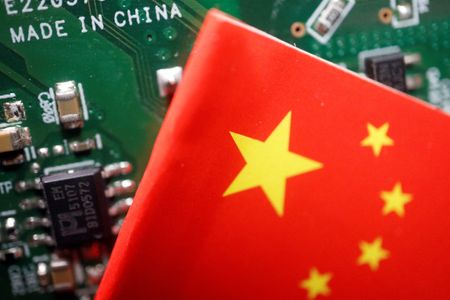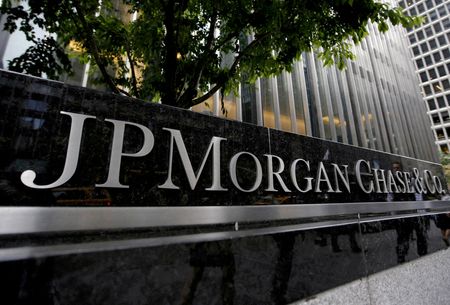(Reuters) -China will control exports of some metals used in the semiconductor industry, ramping up a technology war with the United States and potentially causing more disruption to global supply chains.
Here’s what people are saying about the measure:
LUCY CHEN, VICE PRESIDENT AT TAIPEI-BASED ISAIAH RESEARCH:
“We believe that gallium and germanium are indeed important raw materials for the semiconductor industry, and China currently accounts for at least 80% of their supply. The gallium and germanium export controls that China has recently implemented have a direct impact primarily on the field of compound semiconductors, such as GaAs substrate suppliers Sumitomo, Freiberger and AXT, as well as U.S. GaN substrate suppliers including Cree and II-VI. This also has a knock-on effect on the production of related products such as radio frequency, power amplifier, LED and communication equipment.”
“Although the above-mentioned substrate suppliers rely on gallium imported from China as raw materials, there are other secondary suppliers in Japan, South Korea, Europe, America and other regions that can provide materials, which can control the risk of upstream material shortages. However, under China’s export controls, the cost of gallium and germanium may increase. Whether other suppliers can provide enough material to meet demand is also the focus of our continuing observation.”
JOHN STRAND OF STRAND CONSULT:
“Gallium and Germanium are not like the rare earths where there is almost no alternative suppliers. These are metals that can be gotten in other ways, by-product of coal mining. The effect of restriction would yes be an increase in price, but not at all as painful for the rest of the world as chip restrictions are for China.”
BEN WOOD, CMO OF INDUSTRY ANALYSIS FIRM CCS INSIGHT:
“There has been speculation for some time that China would respond to the escalating sanctions it has faced from the U.S. and others. This is a bold move that will take time to filter through the supply chain but there is little doubt raw materials play a key role across numerous sectors which could cause some disruption over time.”
KAZUMA KISHIKAWA, ECONOMIST AT DAIWA INSTITUTE OF RESEARCH:
“From what I’ve seen, they haven’t narrowed down the countries targeted by the export restrictions, but since Japan, the U.S., and the Netherlands will naturally be included, I think it’s fair to say that this is a de facto retaliatory measure.”
PETER ARKELL, CHAIRMAN OF GLOBAL MINING ASSOCIATION OF CHINA:
“It hardly comes as a surprise that China would respond to the American-led campaign to restrict China’s access to microchips. With roughly 90% of global production of these minor metals, China has hit the American trade restrictions where it hurts. It seems to be a pretty fundamental trade negotiation tactic.
“Gallium and germanium are just a couple of the minor metals that are so important for the range of tech products and China is the dominant producer of most of these metals. It is a fantasy to suggest that another country can replace China in the short or even medium term.”
STEWART RANDALL AT SHANGHAI-BASED CONSULTANCY INTRALINK:
“Chinese suppliers would lose customers, and in the short term it would cause supply issues if China did actually deny exports.
“To me it doesn’t seem as much of a chokepoint because there’s no difficult technological blocker. It is a logistical supply chain blocker of finding new raw materials suppliers.”
MANAGER AT A CHINA-BASED GERMANIUM PRODUCER, WHO DECLINED TO BE NAMED DUE TO THE SENSITIVITY OF THE MATTER:
“The number of enquiries from abroad surged overnight after the export control news. Many overseas buyers are asking, mainly from Europe, Japan and the United States, as it may take as long as two months to get licence permit for exports, so overseas buyers will need to stockpile more cargoes in advance to sustain production in at least two months.
“Offer prices in the domestic market and the export market have increased to 10,000 yuan ($1,380) per kg and over $1,500 per kg, respectively.”
(Reporting By Kentaro Sugiyama on Tokyo, Amy Lv in Beijing, Brenda Goh in Shanghai, Sarah Wu in Taipei, Toby Sterling in London and Supantha Mukherjee in Stockholm; Compiled by Anne Marie Roantree; Editing by Tom Hogue, Himani Sarkar and Louise Heavens)




